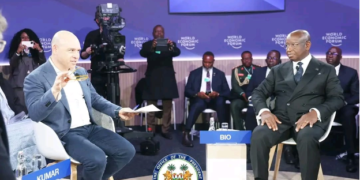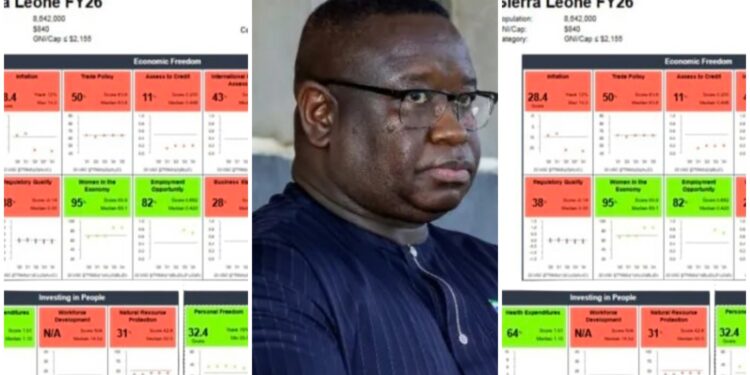Sierra Leone has fallen short in its latest international governance assessment, passing only nine out of 22 indicators in the Millennium Challenge Corporation (MCC) Fiscal Year 2026 Scorecard.
The results show that the country failed 13 indicators, with weaknesses appearing across economic management, democratic governance, and personal freedoms.
The MCC scorecard evaluates countries under four areas: Economic Freedom, Investing in People, Ruling Justly, and Personal Freedom. Sierra Leone’s overall performance places it in the lower group of countries assessed.
Economic Freedom Scores Remain Low
The weakest results appear in the Economic Freedom category. Sierra Leone recorded an inflation rate of 28.4%, placing it in the 0th percentile globally. The fiscal policy score was –4.3 (11th percentile), and trade policy stood at the 11th percentile.
Regulatory quality also scored poorly at –0.64. Access to credit (30th percentile) and land rights (50th percentile) showed that businesses continue to face challenges in expanding and investing.
Some Progress in Health and Education
The Investing in People section presented some areas of improvement. Health spending increased to 6.3% of GDP (64th percentile). Girls’ primary school completion reached 94.1%, and immunisation coverage stood at 91%, both at the 71st percentile.
These gains point to ongoing investment in the country’s health and education systems despite financial pressures.
Governance Indicators Show Mixed Results
Under the Ruling Justly pillar, Sierra Leone passed indicators on accountability and control of corruption. However, other governance areas remain weak.
Government effectiveness and rule of law both scored –0.6 (21st percentile). Political rights and civil liberties were around the 30th percentile, reflecting limited progress in strengthening democratic institutions.
Personal Freedom Category Not Passed
Sierra Leone failed all indicators under the Personal Freedom category. Freedom of religion scored 60 (60th percentile), but scores for freedom of assembly, freedom of speech, and access to information were low, each at the 33rd percentile.
These results point to concerns about civic freedoms and the wider democratic environment.
A Challenging Outlook
With a population of 8.6 million and a Gross National Income per capita of $840, Sierra Leone remains a low-income country. The MCC scorecard highlights the scale of the country’s development and governance challenges.
While there were positive signs in health, education, and anti-corruption efforts, the overall outcome shows that significant reforms are still needed. The assessment serves as a reminder of the work required to improve economic policies, strengthen institutions, and expand personal freedoms.

























